Article 46 of the Constitution of the Russian Federation spells out the right to judicial protection of every citizen of Russia. The current legislation describes this right in detail, which enables the subject of disputed legal relations to defend himself in court. The arbitration process is a form of implementation of judicial protection, which is provided during the emergence of special legal relations. In such cases, the parties are persons who have a dispute arising, usually arising from financial and material relationships.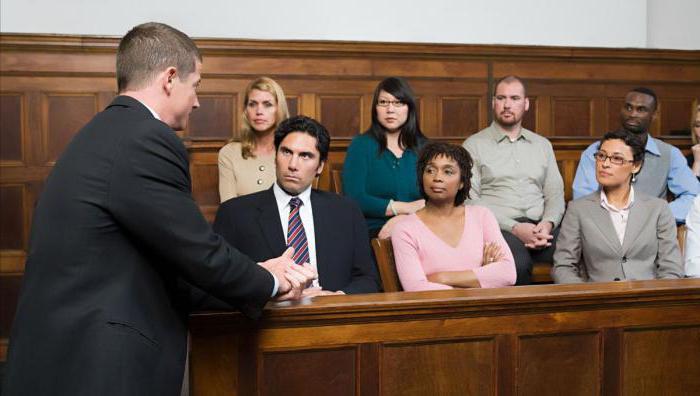
Most often, disputing parties are legal entities or citizens with the status of individual entrepreneurs, and a lawyer represents their interests. He participates in the trial as a representative of an organization or a citizen-entrepreneur. The lawyer’s actions are aimed at obtaining positive results for his client. At court hearings may be attended by heads of organizations, as well as their deputies.
Service list
Lawyers provide a wide range of services:
- make claims when the counterparty violates its obligations;
- conduct a legal examination of the rationality of going to court;
- make statements of claim;
- study case materials;
- draw up the necessary procedural documents;
- participate in legal proceedings on behalf of their representatives;
- help in the execution of court decisions, represent the interests of their principals in the bailiff service and so on.
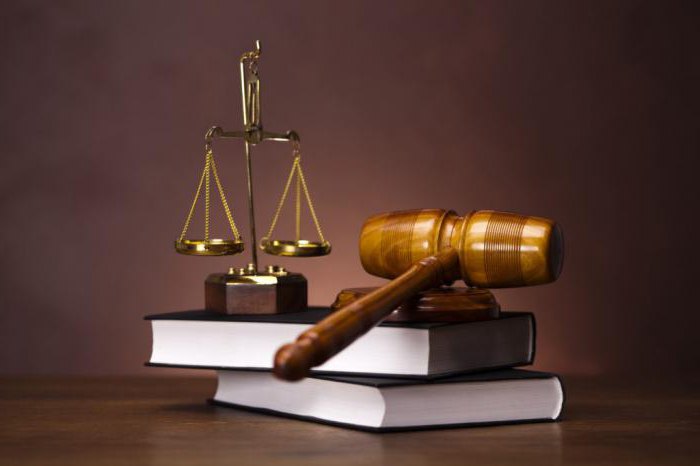
The lawyer also acts as a guarantor of observing the interests of his wards and observing their constitutional rights.
What is meant by the status of a lawyer?
A person with a higher legal education or academic degree in the same specialty can acquire the status of a lawyer in the Russian Federation. He must also have been with experience in this field for at least two years.
After passing the qualification exams, he takes the oath. Further, the applicant is assigned a status, he becomes a full member of the bar. And then the participation of a lawyer in arbitration proceedings is lawful.
When does status end?
The lawyer's status may be temporarily suspended in the following cases:
- a lawyer is elected to state authorities or local self-government;
- his inability to perform his professional duties for more than six months;
- when he is called up for military service.
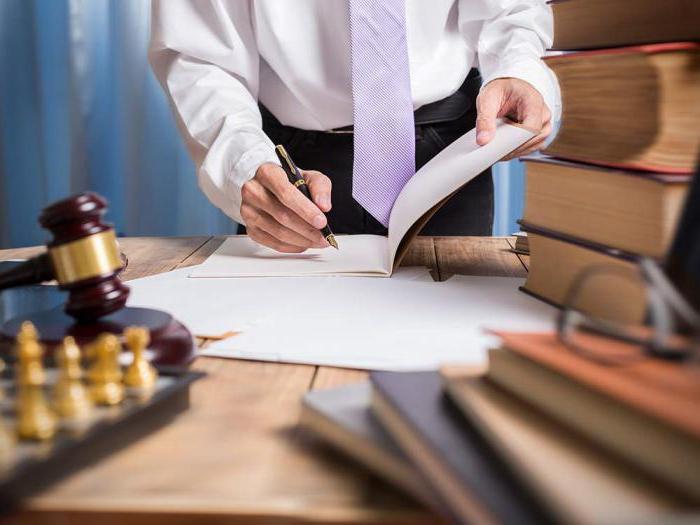
The decision on temporary suspension is made by the council of the bar, after which it is forbidden to conduct this activity. Renewal of status is allowed after the above actions are completed, based on the application. Although there is an opinion that the practical benefit of the status of a lawyer in the arbitration process is that potential clients doubt the lawyer less.
There are also cases of completion of the status of a lawyer:
- upon written request;
- after declaring him incompetent or of limited legal capacity;
- in the absence of a lawyer chamber for four months;
- when committing an act that discredited the honor and dignity of a lawyer or the authority of a bar;
- in case of non-performance or improper performance of professional duties;
- as well as if committed an intentional crime.
Credentials
The general powers of a lawyer in the arbitration process allow to carry out the whole complex of procedural actions on behalf of the principal. Specialists are vested with such powers after obtaining status.
These include:
- right to sue;
- the ability to fully or partially abandon claims;
- recognize the claim;
- change the subject and basis of the claim;
- present and sign a counterclaim, a cassation appeal, a supervisory review complaint;

- get acquainted with the case materials;
- file an application;
- give oral and written explanations to the court;
- present their arguments and considerations in the trial;
- to object to the petitions of other persons participating in the case, their arguments and considerations;
- receive a decision and a court ruling;
- conclude amicable agreements;
- appeal the court decision.
Special authority
There are also special powers of a lawyer in the arbitration process. Formulated in the provision by the principal of the power of attorney, namely:
- the right to sign / withdraw the statement of claim;
- the opportunity to refer the matter to the arbitration court;
- full or partial waiver of claims;
- change in the basis of the claim;
- the right to conclude a settlement agreement;
- the ability to transfer their authority to a representative of another person (reassignment);
- to sign a statement on the revision of a judicial act due to newly emerged circumstances;
- appeal the judicial act of the arbitration court;
- receive awarded cash or other property.
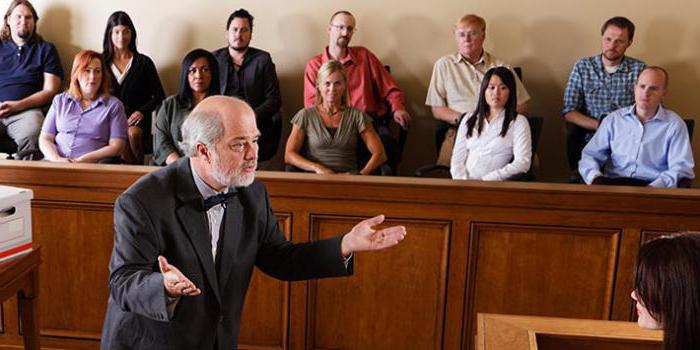
A lawyer's order in the arbitration process may also be the basis for representing the principal in court.
What does the activity of a lawyer mean?
The activities of a lawyer in the arbitration process are divided into two main categories:
- Act in court and work with evidence.
- With the evidence and case materials available, convince the court of their innocence and weaken the arguments presented by the other party.
The advocate’s appearance in the arbitration process includes three independent, but interconnected logical parts:
- make explanations;
- provide evidence of participation in the study and analysis of the testimony of the other party;
- speak in discussions.
Attorney's actions in litigation
At all stages of the meeting, the parties are heard by the court. This right to a fair trial guaranteed by Art. 6 of the European Convention on Human Rights. In his appeals, the lawyer in the arbitration process tries to convince the court of the validity of his legal position in the case. Therefore, speech during the meeting is one of the most important parts of his work.
Each person who participates in the business, sequentially sets out his vision and his position. The purpose of this part of the court is the final determination of the subject matter, the basis and content of the lawsuit, as well as the establishment of the limit of proof. At this stage, on the one hand, the interests of the plaintiff are expressed by the lawyer in the arbitration process, the representative of the defendant demonstratively objects to his position against the charges and claims. And the judge, meanwhile, evaluates the evidence and determines their significance.

After the investigation, the next stage begins - the debate of the parties in which everyone is trying to defend their innocence, drawing the court's attention to the insignificance of the evidence presented by the other side. This stage is considered one of the most important and difficult parts of the lawyer's work, since there is no way to prepare a speech in advance, to formulate it, it takes into account every word spoken by the opposite side, the result of the study and the conclusion of the prosecutor or representatives of state bodies and other persons who participate in the process.
Sometimes in the course of a meeting, new arguments of the other side suddenly appear, additional documents related to the case, new witnesses, etc. are provided. In such circumstances, it is important to analyze all incoming information, skillfully weave it into a refutation and prove its failure.
Difficulties in the process of speech
The process of a lawyer’s speech is complicated by the fact that a judge, using his powers, can interrupt at any time, asking questions about circumstances that the lawyer was going to talk about later, or demanding to show documents immediately. In this case, it is important to answer the judge's questions, keeping in mind the words from which he intended to continue. Or, on the go, rebuild your speech.
Usually, lawyers in civil and arbitration proceedings do not have time to prepare a speech. Very rarely can take a break for a few minutes. In this interval, you need to collect your thoughts. Therefore, despite the preparation, it is impossible to predict how the process will go.
The debate ends with a remark - a kind of summing up. This is not a simple repetition of a speech. The last sentence should contain the essence and arguments of others. Be clear, vibrant and concise. The last word is left to the defendant, because he is considered the weaker side in terms of procedural provisions.
Advocate's Appeal
When reviewing a case, the party that filed the complaint is the first to speak. Here the speech should be short and only within the scope of the statement. If new circumstances arise, then you need to explain why this happened. When all the materials of the case are old, the debate and the remark are absent, and the lawyer must briefly and succinctly state the essence, so that the judge can link all the arguments and complaints into a logical chain.
The main thing is charisma
The work of a lawyer in court cases is the most interesting of all types of legal activity. Speaking is a vibrant part of this process. It should be strict, logical, legally sound, while not seeming callous and inexpressive. The task of the lawyer who advocates is to convince the court of the validity of the claims and objections of his ward.
Judges, like all people, perceive subjectively. This means that if the lawyer's speech is monotonous and boring, then the judge may not hear, and if facial expressions, gestures and posture contradict all that has been said, this will most likely cause distrust of his words. Therefore, not only the text is important, but also how it is voiced, including facial expressions, gestures, intonation, and so on.
Finally
Lawyers for arbitration proceedings, as a rule, are professional representatives who can provide legal assistance to interested parties in protecting their rights. At the same time, assist the court in respecting the rule of law and administering justice, thus, in fact, be considered an independent entity.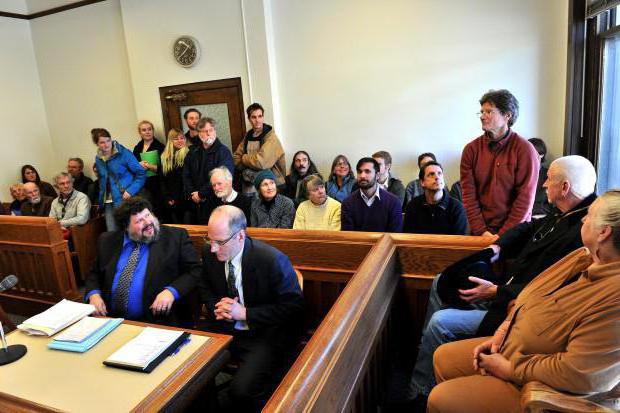
The activities of lawyers are considered a type of socio-legal activity, which is more focused on private interests, although it also has a public character. Thanks to this activity, legal regulation is carried out, the company complies with legal norms, monitors the correct application of laws by state authorities, various institutions, public associations, etc.
There are also some problems in the activities of a lawyer in the arbitration process or in general arbitration practice related to the peculiarities of procedural law. However, an expert and a professional can feel how to act in a given situation.